
Waylon Arnold Jennings was an American singer, songwriter, musician, and actor. He is considered a chief pioneer of the outlaw movement in country music, and was one of the most commercially successful country artists from the late 1960s to the late 1980s, with a string of number one hits and critically acclaimed albums following his rebellion against the conservative Nashville recording industry.
Outlaw country is a subgenre of American country music created by a small group of iconoclastic artists active in the 1970s and early 1980s, known collectively as the outlaw movement, who fought for and won their creative freedom outside of the Nashville establishment that dictated the sound of most country music of the era. Willie Nelson, Waylon Jennings, Merle Haggard, Johnny Cash, Kris Kristofferson, Johnny Paycheck and David Allan Coe were among the movement's most commercially successful members.

Folk-Country is the major-label debut album by American country music artist Waylon Jennings, released in 1966 on RCA Victor. It is his first collaboration with producer Chet Atkins.

Nashville Rebel is the third studio album by American country music artist Waylon Jennings, released in December 1966 via RCA Victor. It reached #4 on the Billboard country albums chart.
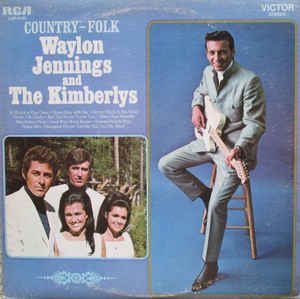
Country-Folk is a studio album by American country music artist Waylon Jennings featuring the Kimberlys on vocals. It was released in 1969 on RCA Victor.
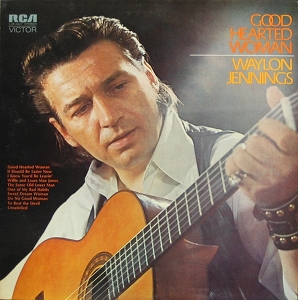
Good Hearted Woman is a studio album by American country music artist Waylon Jennings, released in 1972 on RCA Nashville.
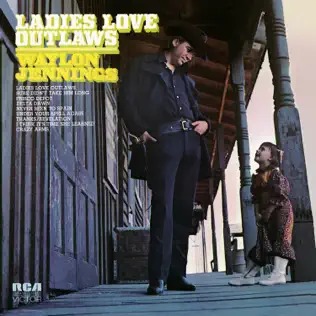
Ladies Love Outlaws is an album by American country music artist Waylon Jennings, released on RCA Nashville in 1972. Together with Jennings' previous album Good Hearted Woman, it marks his transition toward his Outlaw Country image and style. "Ladies Love Outlaws" coined the use of the term "Outlaw" to refer to the country music subgenre, which was developing at the time of its release.

Honky Tonk Heroes is a country music album by Waylon Jennings, released in 1973 on RCA Victor. With the exception of the final track on the album, "We Had It All", all of the songs on the album were written or co-written by Billy Joe Shaver. The album is considered an important piece in the development of the outlaw sub-genre in country music as it revived the honky tonk music of Nashville and added elements of rock and roll to it.

This Time is a studio album by American country music artist Waylon Jennings, released on RCA Victor in 1974, at the peak of the outlaw country movement. It was produced by Jennings and Willie Nelson.

Dreaming My Dreams is the twenty-second studio album by American country music artist Waylon Jennings. The album was co-produced with Jack Clement and recorded at Glaser Sound Studios in Nashville, Tennessee, between February and July 1974.

Wanted! The Outlaws is a compilation album by Waylon Jennings, Willie Nelson, Jessi Colter, and Tompall Glaser, released by RCA Records in 1976. The album consists of previously released material with four new songs. Released to capitalize on the new outlaw country movement, Wanted! The Outlaws earned its place in music history by becoming the first country album to be platinum-certified, reaching sales of one million.

Waylon & Willie is a duet studio album by American singers Waylon Jennings and Willie Nelson, released by RCA Records in 1978. In the US, it stayed at #1 album on the country album charts for ten weeks and would spend a total of 126 weeks on the country charts.
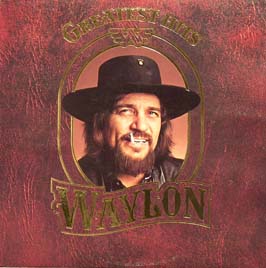
Greatest Hits is a compilation album by American country music artist Waylon Jennings, released in 1979 by RCA Records.

Leather and Lace is a duet album by Waylon Jennings and Jessi Colter, released on RCA Records in 1981.

Waylon Live is a live album by Waylon Jennings, released on RCA Victor in 1976.
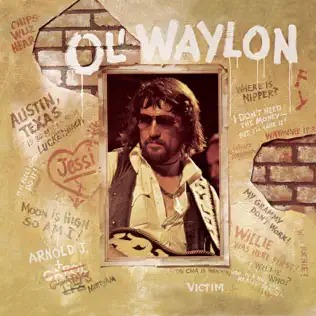
Ol' Waylon is a studio album by American country music artist Waylon Jennings. It was released on RCA Victor in 1977. It eventually became one of Jennings' highest-selling albums, due in no small part to the phenomenal success of the chart-topping "Luckenbach, Texas ." It was also the singer's fourth solo album in a row to reach the top of the country charts, remaining there for thirteen weeks and becoming country music's first platinum album by any single solo artist.

What Goes Around Comes Around is a studio album by American country music artist Waylon Jennings, released on RCA Victor in 1979.

The Waylors, later Waymore's Outlaws, is a country music band, best known as the backing and recording band of country music singer Waylon Jennings. Jennings formed the band in 1961, consisting of Jerry Gropp on the guitar and Richie Albright on the drums after moving to Phoenix, Arizona. The band earned a local fan base during its appearances on the night club JD's.

The Willie Way is the 15th studio album by country singer Willie Nelson. This was also the last album of new material released by RCA Records before Nelson's departure for Atlantic Records and move to Austin, Texas.

Ralph Eugene Mooney was an American steel guitar player and songwriter, he was inducted into the Steel Guitar Hall of Fame in 1983. He was the original steel guitarist in Merle Haggard's band, The Strangers and Waylon Jennings's band, The Waylors.



















